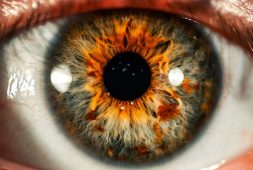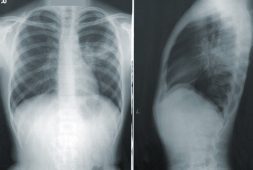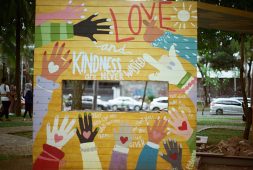
Ensuring your bedroom remains in darkness can facilitate a return to slumber if you awaken during the night. According to a recent study, those who encounter the greatest difficulties achieving a restful night’s sleep may face a significantly heightened risk of experiencing a stroke.
Symptoms of insomnia, such as struggling to initiate or sustain sleep, or routinely waking prematurely before sunrise, may have consequences extending beyond mere fatigue.
The study, published in the journal Neurology, proposes that regularly grappling with sleep-related issues of this nature may also amplify one’s susceptibility to stroke, particularly if they are below the age of 50.
In this research endeavor, spanning approximately nine years and involving over 30,000 individuals with no prior history of stroke, scientists evaluated participants’ sleep patterns. They asked participants to assess the frequency of experiencing four sleep-related problems: difficulty falling asleep, nocturnal awakenings, early morning awakenings followed by an inability to return to sleep, and a persistent feeling of restlessness. Sleep scores ranged from 0 to 8, with higher scores indicative of more severe and frequent insomnia symptoms.
Over the study’s duration, a total of 2,101 strokes occurred. On the whole, individuals with insomnia symptom scores of 5 or higher displayed a 51 percent greater likelihood of experiencing a stroke during the study period compared to those who reported no sleep-related issues.
Nonetheless, the elevated stroke risk linked to a multitude of insomnia symptoms was significantly more pronounced, exceeding threefold, among individuals under the age of 50. For those aged 50 and above, experiencing numerous sleep disturbances only raised the risk of stroke by 38 percent, as indicated by the study’s findings.
“This striking difference suggests that managing insomnia symptoms at a younger age may be an effective strategy for stroke prevention,” lead study author Wendemi Sawadogo, MD, PhD, MPH, said in statement. He is a recent graduate of Virginia Commonwealth University in Richmond and member of the American Academy of Neurology.
In a study comprising approximately 19,000 individuals exhibiting milder insomnia symptoms, scoring between 1 and 4, approximately 6.8 percent of them experienced a stroke. This figure contrasts with the 5.8 percent stroke incidence among participants reporting no insomnia symptoms and the approximately 7.7 percent stroke occurrence observed in individuals with insomnia symptom scores of 5 or greater.
The Study Unable to Prove How Insomnia Directly Brings About Stroke
The study did not constitute a controlled experiment aimed at establishing a direct causal link between sleep difficulties and strokes. Furthermore, scientists noted that some of the observed correlation between insomnia symptoms and strokes could be attributed to participants’ preexisting medical conditions, such as diabetes and high blood pressure, which themselves pose stroke risks.
Another notable limitation of this analysis is its reliance on participants’ self-recollection and reporting of their frequency of sleep problems.
Additionally, José M. Ordovás, PhD, a professor specializing in nutrition and genomics at Tufts University in Boston, who has conducted research on the relationship between sleep and health, suggests that the stronger association between insomnia symptoms and strokes in individuals under 50 may be due to the lower incidence of strokes within this age group.
“Given that stroke in people under 50 is less likely to be due to age-related changes, it could be that lifestyle or health factors, such as insomnia, have a proportionally greater influence on stroke risk in this population,” Dr. Ordovás said. Although he wasn’t involved in the new study.
Methods on Improving Sleep and Possibly Lowering Risk for Stroke
The encouraging aspect of all this is that there are numerous actions individuals can take to enhance their sleep quality, which might also hold the potential to lower their risk of experiencing a stroke, according to Ordovás. He provides several recommendations for achieving a better night’s sleep:
- Maintain a consistent sleep schedule. Go to bed and wake up at the same time each day, even on weekends.
- Create a sleep-conducive environment in your bedroom. Ensure the room is dark, quiet, and cool. If necessary, consider using earplugs, an eye mask, or a white noise machine.
- Establish a regular bedtime routine. This could involve activities like reading, taking a warm bath, listening to calming music, or practicing meditation.
- Limit daytime naps. While occasional napping isn’t problematic, extended or irregular daytime naps can disrupt nighttime sleep.
- Be mindful of your dietary and beverage choices. Avoid going to bed either hungry or overly full, and restrict your liquid intake before bedtime to prevent frequent trips to the restroom during the night. Also, steer clear of nicotine, caffeine, and alcohol, as they can interfere with sleep.
- Engage in daily physical exercise. Regular physical activity can assist in falling asleep more easily and enjoying deeper sleep.
For many individuals, adopting these lifestyle adjustments can alleviate sleep issues and enable them to consistently achieve the recommended seven to nine hours of sleep per night for most adults.
However, if sleep problems persist and significantly affect your quality of life, it’s advisable to consult a medical professional, as recommended by Chang-Ho Yun, MD, PhD, a professor of neurology at Seoul National University in South Korea, who was not involved in the new study. In such cases, treatments like cognitive behavioral therapy or prescription sleep aids may provide effective solutions. This is particularly pertinent if you frequently find yourself awake for more than thirty minutes in the middle of the night or if you’ve experienced multiple symptoms of insomnia and daytime fatigue at least three times a week for three or more months, according to Dr. Yun.



